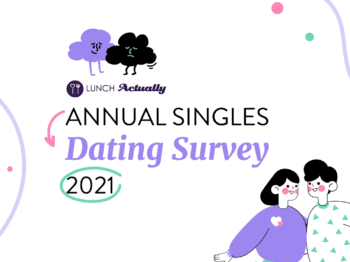Who Are You Likely to Date? There's Science Behind It!
Trailing Back To Your Childhood Might Help You Know Your Type and Who You're Likely to Date.
Theories about us ending up with someone like our parents is not unheard of. It could be in terms of physical appearances, personality traits or contextual factors. While this makes you wonder (and maybe cringe a little) there has been scientific study to why, how and who you're likely to date - which answer is: someone like your parents.
Douglas Spalding, English biologist, conducted an experiment using chicks (the animal not girls you meet at the bar) in 1873. He found that chicks imitate their mother because they are the first example of the real world that the chicks are exposed to. This results in them following their mother in almost everything it does, despite not knowing the purpose of their actions. Later, a German biologist, Oskar Heinroth labelled this action as imprinting. This concept has been branched out into, filial imprinting (the imprinting that occurs between parent and child), and sexual imprinting (child's sexual preference is determined by the characteristics of parents).
Physical Appearances
“It was love at first sight!”
We have seen and heard this (some even experienced!) for the longest time. When you see someone, the physical traits are the first elements your brain picks up. A Hungarian researcher did a study on the facial features of 52 families. A significant correlation was found between the appearance of the husband and his father in law. The same was found with the wife and her mother in law. Another study that was published in a scientific journal Philosophical Transactions B. This study discovered that mothers-in-law and wives can often be matched successfully by strangers based on facial resemblance alone. Aren’t you glad your parents are good looking?
Personality Traits
The next step of attraction is of course the personality traits. When you date someone, looks can only take you so far. When people say they have met their soulmate, it is the connection beyond the physical attributes. Psychotherapist Elayne Savage, the author of Breathing Room: Creating Space to Be a Couple, calls this "familiarity". She claims that growing up, we are already building our preference in a partner usually using our parents as a role model. For an example, children who grew up with parents who are extrovert are more likely to find someone that exudes that particular characteristics.
So next time when your partner tries to convince you that their parents like you, chances are they are right! One less thing to worry about, huh?
Contextual Factors
This is something we see on TV usually to stereotypically resemble a girl who is raised by a single mother, making bad choices when it comes to men. Well, this issue is not that shallow and CERTAINLY isn’t that one-sided. As perfect as we feel our parents are, they have flaws just like everyone else (internal denial, anyone?) So theory is about how we have the tendency to find someone with identical character flaw to fulfill our desire to “fix it”. Stephen Treat, the director of the Council for Relationships, claims that this is the most common for individuals who feel rejected or abandoned by a parent.
This can also work in opposite where a person swears off from dating someone with that flaw. For an instance, someone who grew up with an alcoholic parent are more likely to be against dating someone with that habit. Therefore, he or she is seeking redemption, an escape from the past. Also, imprinting has to occur at what we call the “critical age”, a crucial part in our post-natal developmental stage. At this stage, we are receptive to external influences. Hence, for children who grew up without their parents, imprinting would then occur based on their surrounding.
Do you think you’ve found a partner that is similar to your parents? Let us know what you think by clicking the link below! ;)


Recommended posts






